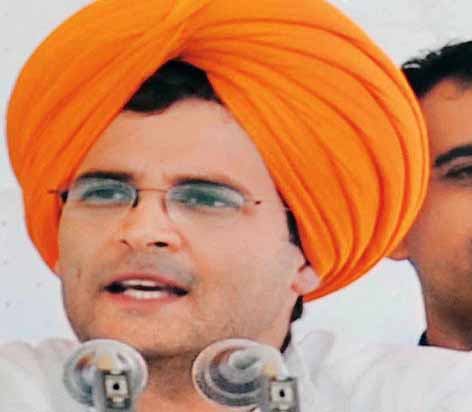 New Delhi, Mar 16: An upbeat Rahul Gandhi today rejected the view that the Congress party was an "underdog" or that it faced an "uphill" task in the Lok Sabha polls, affirming that there would be a Congress-led UPA III.
New Delhi, Mar 16: An upbeat Rahul Gandhi today rejected the view that the Congress party was an "underdog" or that it faced an "uphill" task in the Lok Sabha polls, affirming that there would be a Congress-led UPA III.
Acknowledging that after 10 years in power "there is a certain amount of anti-incumbency against us", the Congress campaign chief, nevertheless, disagreed with senior party leader and Finance Minister P Chidambaram's view that the party was an underdog and faced an uphill task.
"Congress is fighting a challenging election and we will win the election," he said while refusing to hazard a guess about the number of seats the party would get. "I am not a soothsayer but we will do well," he told PTI in an exclusive interview here.
Debunking opinion polls, which he had described as a joke, Gandhi said the party would do better than the 2009 elections when it had won 206 seats. Predictions before 2004 and 2009 elections also were that the Congress was going to lose and get thrashed, he recalled.
Answering a question on the failure of the government and the party to communicate with the people, he admitted, "I think certainly we could have been more aggressive in conveying our achievements. As I said, we have done transformatory work. We could always be better in communication."
Rubbishing the perception that Congress was losing allies, the party vice president said that it had alliances with NCP, RJD, JMM, RLD and the National Conference but had lost the DMK and the Trinamool Congress.
Asked if the Congress could "do business" with TMC and DMK again, Gandhi replied, "We are always willing to work with people who share our ideology and political philosophy, who are determined to fight sectarian and communal forces that seek to divide India for narrow political gains.





Comments
Add new comment